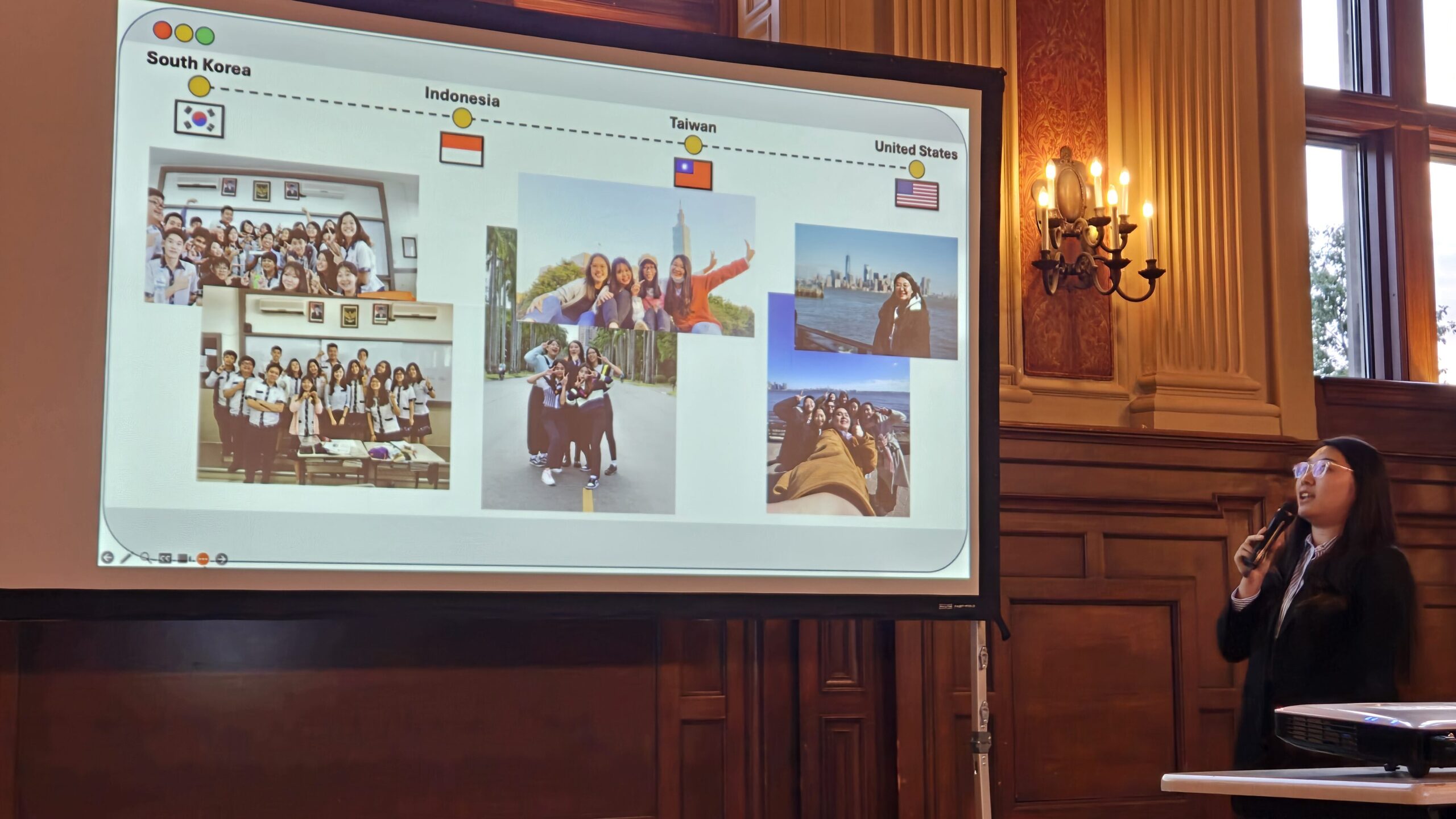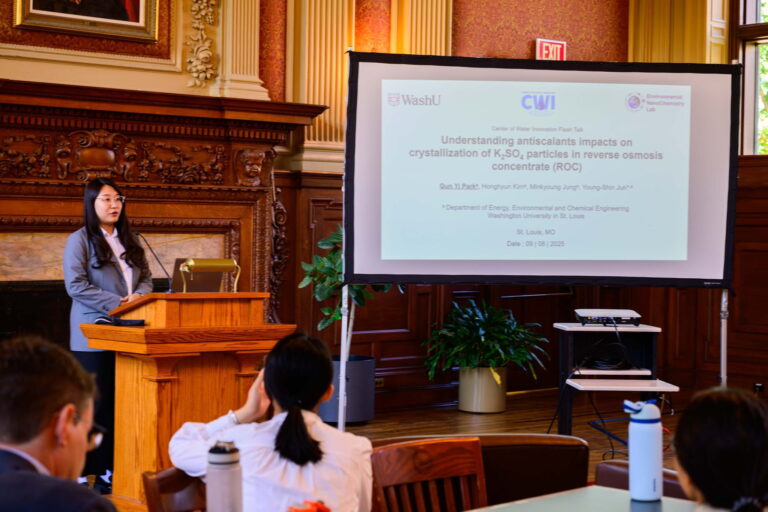Gun Yi Park is fluent in several different languages and has more than 9 years of experience in other countries. She has always had a passion for embracing new challenges and assuming extra responsibilities and duties. As an international student, she graduated from National Taiwan University, majoring in chemical engineering. In 2023, she took on an undergraduate summer internship at Washington University in St. Louis, which motivated her to further her studies at WashU.
In her spare time, she loves to play instruments, cook, and spend time with her friends.
Scholar Voices
Global Leadership Vision Op-Ed | Vulnerability as Power in Global Leadership
By Gun Yi Park | October 2025

I am from South Korea, and I grew up without telling other people my struggles. When I moved from Korea to Indonesia at 15, I believed the best way to adapt was to stay silent about my struggles. Yet the moment I admitted I was lost in the language, could not follow up on class materials, classmates reached out, and real friendships began. That lesson has stayed with me through my years in Taiwan and now the United States: vulnerability, far from weakness, creates trust.
And yet in global leadership, vulnerability is often rejected. Leaders are expected to project certainty, decisiveness, confidence and strength. Critics argue that admitting fear or doubt undermines authority, risks losing public confidence, and may even invite exploitation by rivals. In international politics, they contend, a leader who says “I don’t know” risks weakening their negotiating position. In corporate life, executives who admit failure might unsettle investors. From this perspective, vulnerability seems dangerous, even irresponsible.
But this logic rests on a misconception: that power is only effective when it hides uncertainty. Research across leadership studies tells a different story. Brené Brown (2012) defines vulnerability as “uncertainty, risk, and emotional exposure,” and links it to innovation and trust. Detert and Burris (2007) found that leaders who admit limitations encourage employee voice, while Nembhard and Edmondson (2006) showed leader inclusiveness fosters psychological safety, a cornerstone of effective teams. In short, vulnerability can create environments where others feel safe enough to step forward.
Real-world examples bear this out. During the COVID-19 pandemic, New Zealand Prime Minister Jacinda Ardern was unusually candid about what she did not know, while expressing empathy for the hardships her citizens faced. Far from losing authority, she earned one of the highest trust ratings among global leaders (Wilson, 2020). In Taiwan, officials regularly admitted uncertainty during the early pandemic stages but explained evolving guidelines transparently; this honesty sustained public compliance (Wang et al., 2020). Even some leaders of organizations who communicated vulnerability were better able to maintain public cooperation.
Of course, critics raise a valid concern: vulnerability must be balanced. Oversharing or indecision can erode confidence. A leader who confesses every private doubt without direction risks spreading confusion. But acknowledging limits while modeling honesty is not weakness—it is resilience. It signals that leadership is not about pretending to have all the answers but about building collective capacity to find them.
Instead of clinging to outdated notions of invulnerability, global leaders must embrace vulnerability as a source of connection and resilience. The challenges of the 21st century, such climate change, pandemics, displacement, and digital disruption, are too complex for any one individual or institution to solve alone. Leaders who acknowledge uncertainty signal not weakness but wisdom: they create space for collaboration, innovation, and collective problem-solving. In a fractured world, vulnerability is not the opposite of power, it is the bridge that turns authority into trust.
References
- Avolio, B. J., & Gardner, W. L. (2005). Authentic leadership development: Getting to the root of positive forms of leadership. Leadership Quarterly, 16(3), 315–338.
- Brown, B. (2012). Daring Greatly. Gotham Books.
- Detert, J. R., & Burris, E. R. (2007). Leadership behavior and employee voice. Academy of Management Journal, 50(4), 869–884.
- Nembhard, I. M., & Edmondson, A. C. (2006). Making it safe: Leader inclusiveness and psychological safety. Journal of Organizational Behavior, 27(7), 941–966.
- Wilson, S. (2020). Pandemic leadership: Lessons from New Zealand’s approach to COVID-19. Leadership, 16(3), 279–293.
- Wang, C. J., Ng, C. Y., & Brook, R. H. (2020). Response to COVID-19 in Taiwan: Big data analytics, new technology, and proactive testing. JAMA, 323(14), 1341–1342.
Celebrating Innovation: Gun Yi Park Secures Second Place in WashU Research Symposium
Gun Yi Park, a 2024 McDonnell Scholar and PhD student in Energy, Environmental, and Chemical Engineering at WashU’s McKelvey School of Engineering, achieved significant recognition at the WashU Center for Water Innovation Research Symposium on September 8, 2025.

